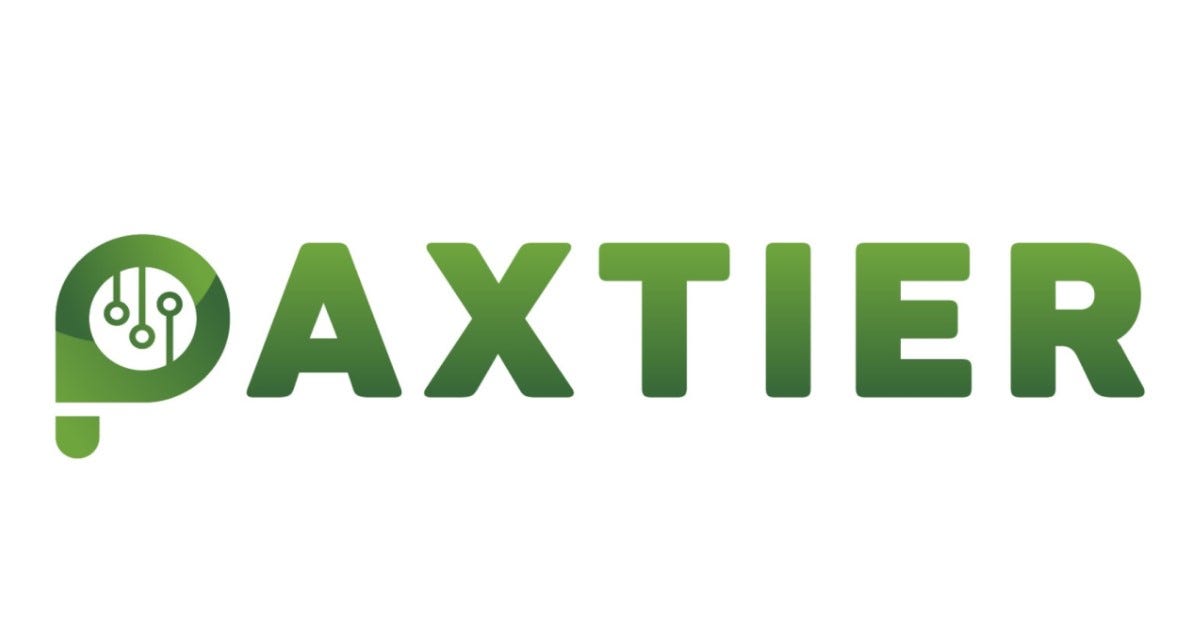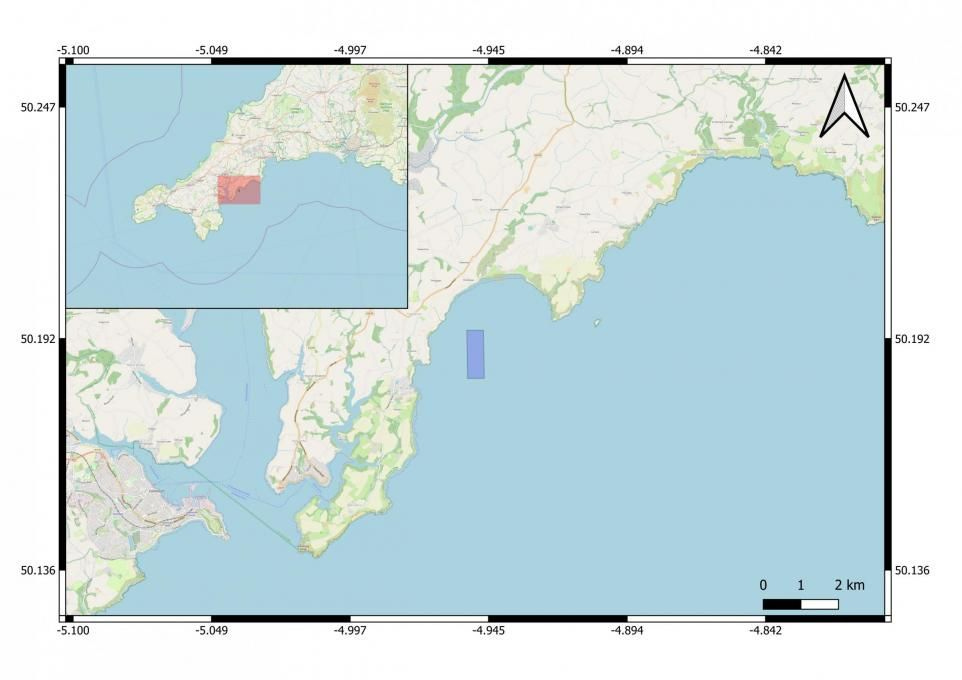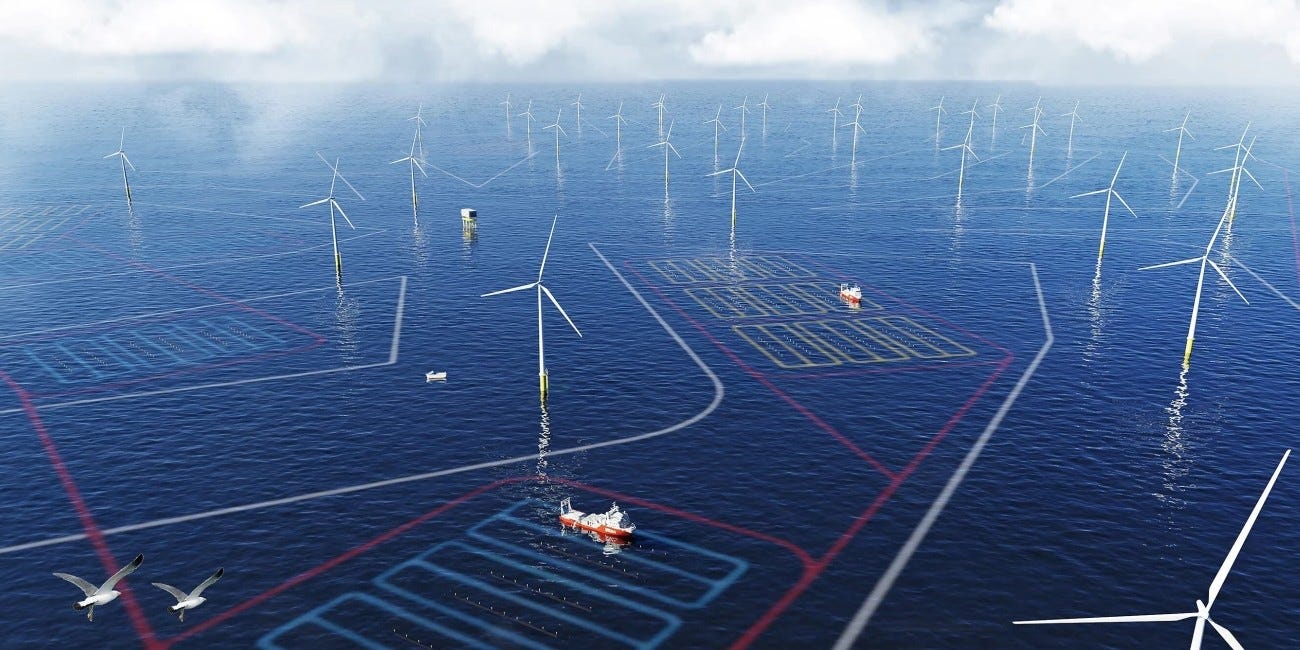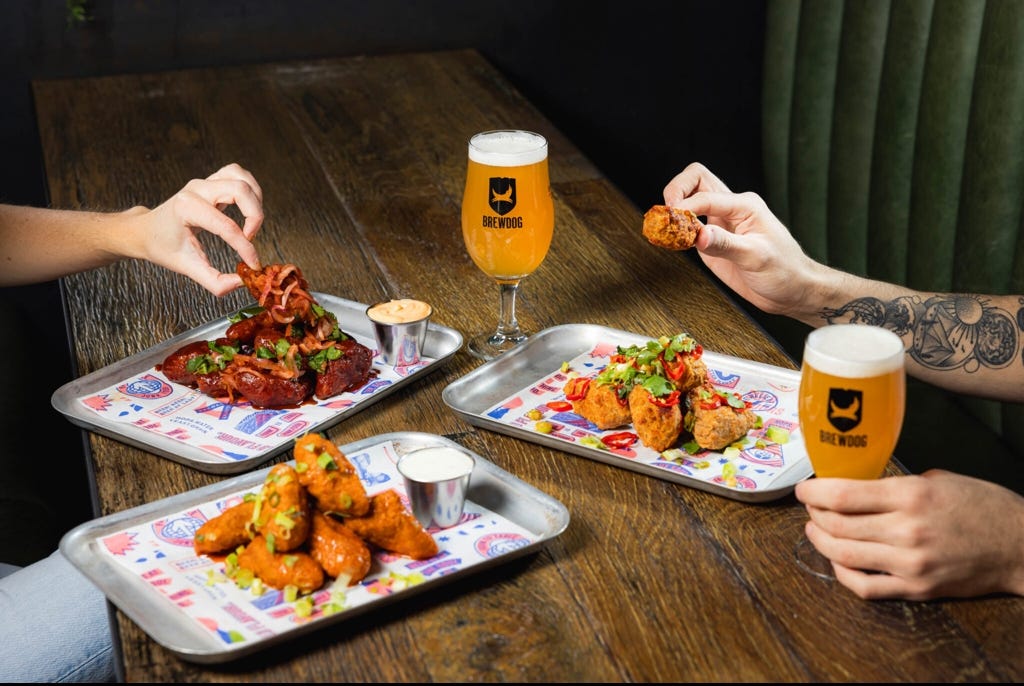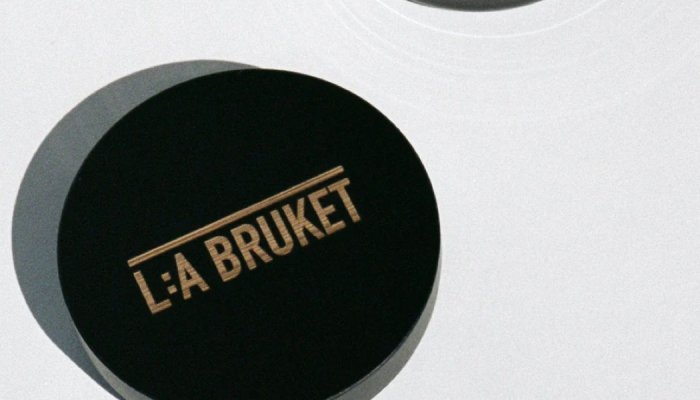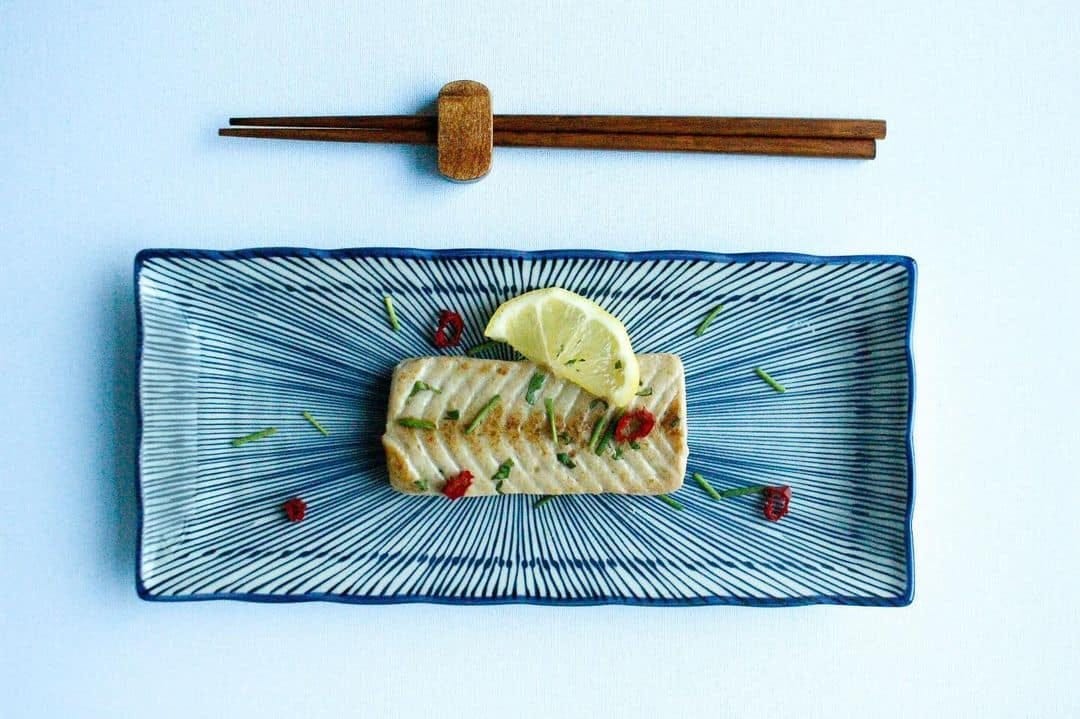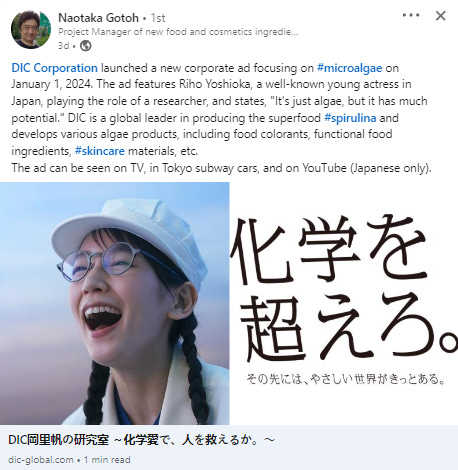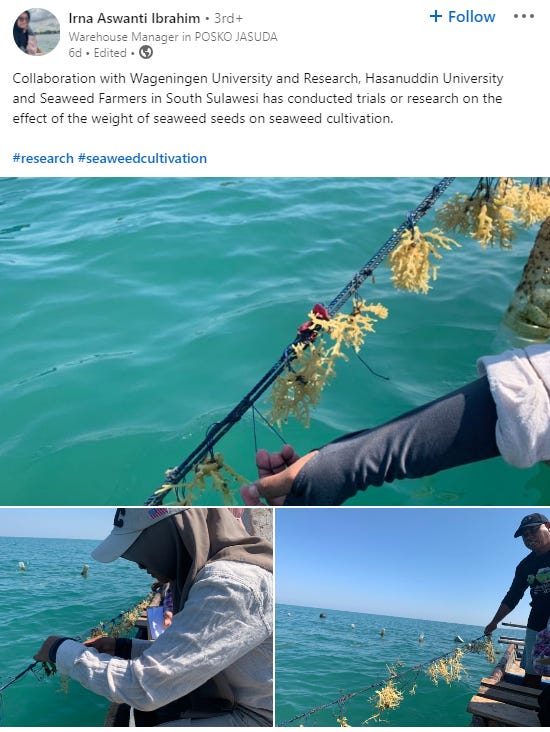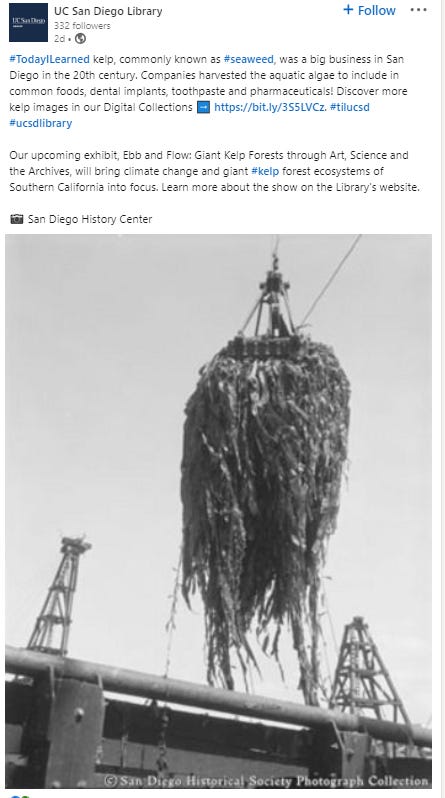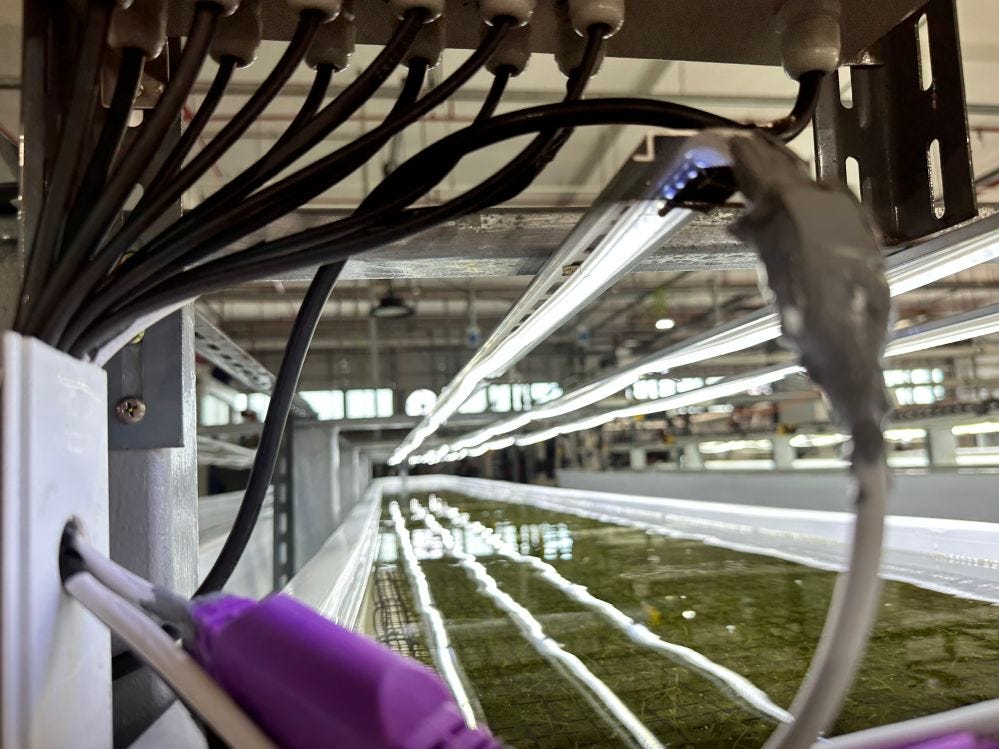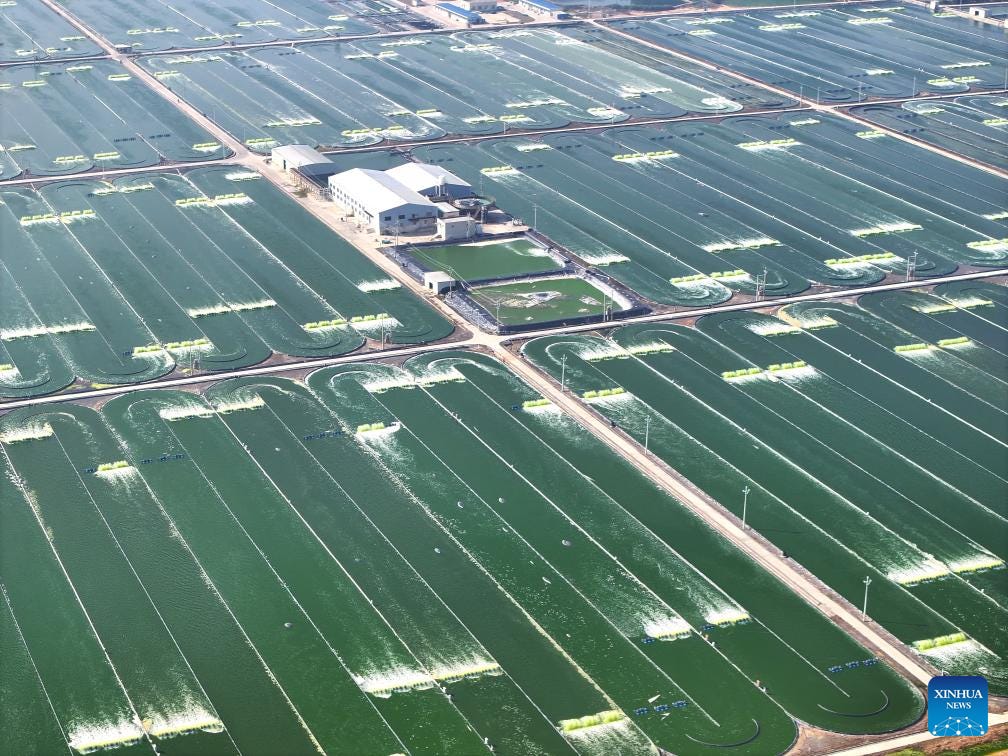“At this stage of development, it is important that seaweed farming learns lessons from more established forms of aquaculture. There must be a relationship between the operator and the community before a seaweed farm goes to the planning stage so that people know what they’re getting. It is difficult to do that retrospectively, as the operator is seen as less trustworthy. Considering social licence to operate in the early planning makes the planning application stages easier for all stakeholders.” — Dr. Suzi Billing of SAMS
Dear seaweed and microalgae technologists, operators, and investors, welcome to another edition of the Paxtier Report!
Food for thought this week…
As many of you will know, there’s a very real social licencing challenge still facing the seaweed sector in emerging regions.
This pain point may have caught your eye this week as local fishermen opposed a seaweed farming licence off Gerrans Bay in Cornwall, UK.
The media backlash eventually led to the withdrawal of the licence application, with an MP stating, ‘If approved, it would have proved disastrous, both for our fishermen, heavily reliant on inshore waters for their livelihoods, and for leisure and community use, with iconic events like the Portscatho Regatta taking place in these waters.’
Such conflicts are common in busy marine environments like the UK. If not managed well, these disputes between potential seaweed farmers and other marine users can escalate into tense and even hostile confrontations.
Unfortunately, the event serves as a stark reminder of a critical, and perhaps the most significant, challenge in the scale-up of seaweed cultivation in emerging production hubs: gaining a social licence to operate.
Thankfully, there are solutions. These include improved education, collaboration, thoughtful site selection, and forming regional organisations that effectively represent the interests of stakeholders.
Deeper offshore farming and co-cultivation with wind farms also crop up as potential solutions, but they are not without their own challenges. This was recently underscored by John Holmyard, owner of Offshore Shellfish Ltd, in a discussion on my post:
“There have been 20 years of promotion of co-cultivation with wind farms and everyone says what a great idea it is, yet there has been very little progress and no-one seems to be asking why it has not happened.
The reasons are fairly simple, the low trophic aquaculture industry mostly does not have the capital or infrastructure or scale of business or defined markets for it to develop and the energy companies have no driving force to make them add LTA farms to their operations.
There is a lack of understanding from the promoters of the idea who seem to assume that LTA can take place in any old bit of water when the reality is that it needs very specific conditions.
In the UK, apart from ourselves in Lyme Bay Offshore Shellfish Ltd there are virtually no large scale LTA farms in exposed high energy conditions and none in areas with the added complications of co-location.”
We are very keen for the idea to become reality but until realistic technical knowledge and genuine economics are applied, we will be looking at attractive infographics and reading “what if” articles for another 20 years.”
Looking ahead, I’m confident that low-trophic aquaculture organisations will better navigate these conflicts in the future. But it’s more important than ever to involve communities in licencing conversations early on and advocate for science-led education and collaboration.
For more insight into these topics, I’d recommend checking out the “Social License for UK Seaweed Farming” report recently compiled by WWF-UK and SAMS.
And to conclude, here’s an insight from my recent conversation with Professor Charlie Yarish:
“Ecosystem services can be broadly divided into four categories: provisioning services (biomass production), regulating services (e.g. production of oxygen and sequestering of carbon), supporting services (e.g. nutrient cycling), and cultural services.
Throughout my career, communicating all of these with the public has been instrumental in providing a social licence to cultivate. The breadth of ecosystem services resonates very strongly with people and elevates the concept of farming – especially in Western countries like the US.”
Do you agree? Let me know what you think.
In today’s report…
Markets: 📈 Koralo debuts with ‘New F!sh’, South Korea’s first microalgae & mycelium-based fish fillet.
Deals: 🤝 BettaFish details partnership with Dussmann Group Food Services.
Movers and Shakers: 🌊 Sustainable Sailing explains partnership with Checkerspot in the US to develop 75% biobased composite rudders and stocks for the Europe class.
Around the web: 🌿 Full-cycle onshore aquaculture in the spotlight in Japan.
Markets and Investing
✂️Algae Market Snippets
Some big moves in recent weeks…
Macroalgae
🌿 A bid to create a large seaweed farm the size of “153 football pitches” has been withdrawn, with the news welcomed by the local MP (Read more HERE).
🍖 Restaurant and bar chain BrewDog has collaborated with THIS plant-based meat alternative brand, in order to produce the first skin-on vegan chicken wings (Read more HERE).
🛰️ Satellite tracking software has been offered to authorities to help manage seaweed and algal build up on Dublin coast (Read more HERE).
🌿 Algapelago shares 2024 plans: highlights agriculture trials, partnerships and IMTA approach (Read more HERE).
🌊 Atlantic Sea Farms details progress in 2023: 13 new partner farmers for the 2024 growing season, products in over 850 stores, 125,000 lbs. of kelp for ingredient partner brands and much more (Read more HERE).
📈 ClimaCrew launches Climazyme Z- seaweed enriched zeolite granules, curated for plant growth promotion in agriculture (Read more HERE).
💄 Jean-Christophe Jourde takes the helm of Swedish beauty brand L:A Bruket (Read more HERE).
🤝 BettaFish details partnership with Dussmann Group Food Services (Read more HERE).
🌿 Zanzibar’s seaweed industry provides additional updates on new processing plant collaboration (Read more HERE).
💄 South Pacific Mozuku Tonga Ltd (SPM) is set to expand its product range into the health and beauty industries this year (Read more HERE).
🌿 Cultivated Norwegian kelp said to “match wild counterpart in quality.” Offers some figures on Norway cultivated production figures (Read more HERE).
Microalgae
💦 Australia launches water quality monitoring system for nation’s “seafood basket” (Read more HERE).
⛵ Sustainable Sailing details partnership with Checkerspot in the US to develop 75% biobased composite rudders and stocks for the Europe class (Read more HERE).
💵 Moleaer in $1.9M deal With Lake Elsinore (Read more HERE).
🐟 Novel omega-3 source gains approval for use in Norwegian aquafeeds (Read more HERE).
🛢 DIC develops DAILUBE KS-519, the world’s first algae oil based Sulfurized EP Additive (Read more HERE).
🐟 Koralo debuts with ‘New F!sh’, South Korea’s first microalgae & mycelium-based fish fillet (Read more HERE).
🤝 More details on Willow Ingredients’ supply partnership agreement with microalgae specialist, HuveNutra to develop the microalgae-derived HuvePure DHA – lipid biomass, as a viable alternative to fish oil used in animal feed (Read more HERE).
🐟 AquaChile, Blumar mass salmon die-off nears 3,800 tons (Read more HERE).
📈 Fermentalg: share price rises, strategic plan welcomed (Read more HERE).
🐦Tweets of the week
🔥 What else was hot in seaweed and microalgae this week?
General
📈 Smart protein trends and predictions for 2024: F&B India magazine spotlights algae (Read more HERE).
🤝 Buller and Rice salon showcases plant-based materials (Read more HERE).
Macroalgae
🌊 Meet the founder. Vertical Oceans’ John Diener on high-tech shrimp farming, “I have this obsession with efficiency (Read more HERE).
🌿 Seaweed has long been a staple of many cultures, but the Western diet seems to have forgotten it. Is it a healthy ingredient we should be embracing? (Read more HERE).
🌿 Scientists demonstrate that kelp forests can do “more than supply food to tiny, hungry crustaceans living in the sand” (Read more HERE).
🌿 The fishing is over for a lot of us Aran islanders but we still have the land – and we’ve never eaten so healthily (Read more HERE).
Microalgae
🟢 Study identifies spirulina as prime alt protein source for poultry feed (Read more HERE).
𓆟 Full-cycle onshore aquaculture in the spotlight in Japan (Read more HERE).
🟢 Education on algae as renewable energy has potential to boost Sarawak’s development (Read more HERE).
🟢 View of microalgae breeding base in China’s Guangxi (Read more HERE).
🟢 Single-cell precision: New screening method “accelerates cyanobacterial analysis” (Read more HERE).
🧪 (Paper) Oldest thylakoids in fossil cells directly evidence oxygenic photosynthesis (Read more HERE).
That’s all folks!
Thanks again for joining us this week. Hope you have a great day and stay tuned for more seaweed and microalgae updates soon!
Best,
Peter


